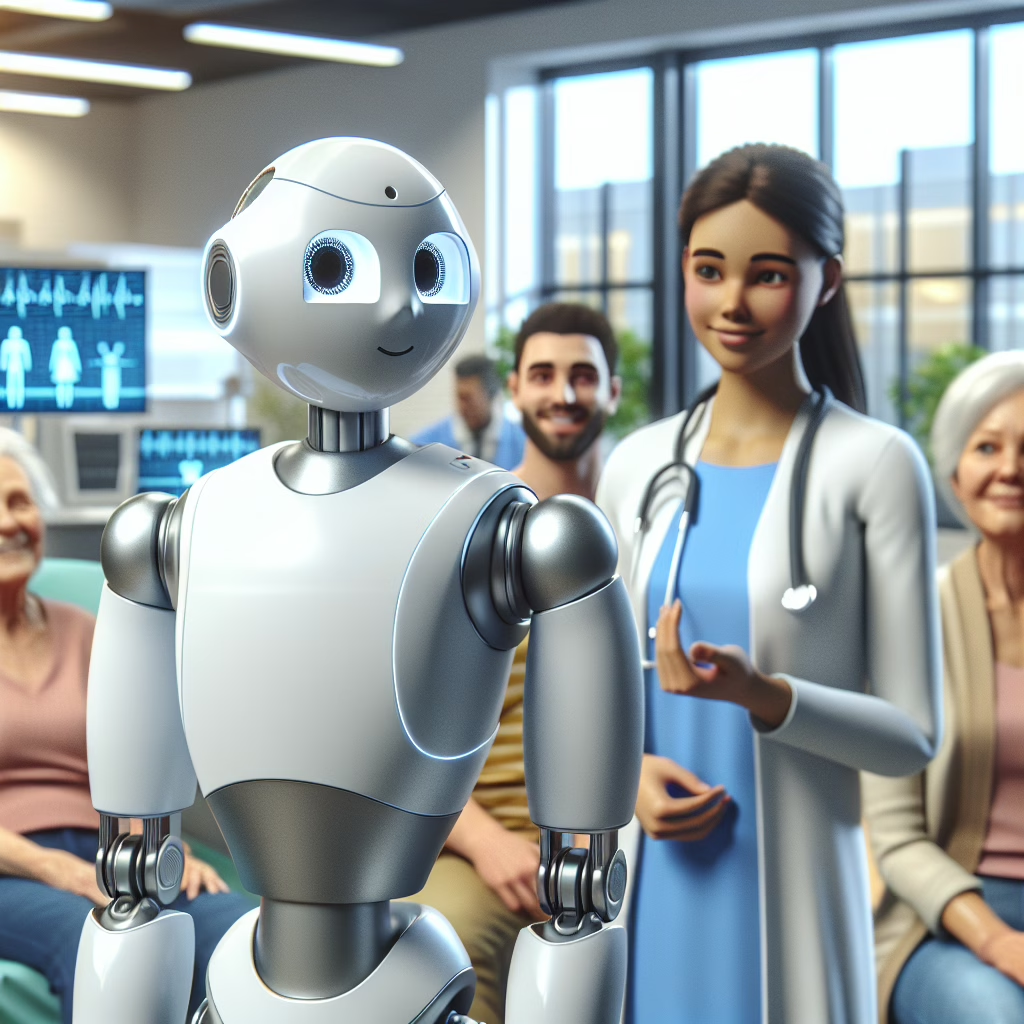In a world where robots are usually portrayed as cold, unfeeling machines programmed to take over our jobs (and maybe our planet), Amazon has decided to take a bold leap into the future. Enter Vulcan, the new AI lab robot that not only processes information but also has feelings—well, at least the ability to mimic them! That’s right, folks, we’re living in 2025, and robots are experiencing emotions. Well, sort of.
Meet Vulcan: The Robot with a Heart (Sort Of)
Vulcan is not your average robot. While most robots excel at lifting heavy objects and performing repetitive tasks, Vulcan brings something extra to the table: empathy. Developed by Amazon’s cutting-edge AI lab, this remarkable machine can sense its surroundings in ways that make it seem almost human-like. But before you start picturing Vulcan as your new best friend who remembers your birthday, let’s clarify: it doesn’t have feelings in the traditional sense. It merely reacts based on complex algorithms that are designed to interpret human emotions.
Imagine a robot that can respond to your mood swings more accurately than your best friend. Need a hug? Vulcan will give you a gentle squeeze—though it might feel more like a firm handshake! This innovation could redefine how we interact with machines and could open up new avenues for robotic assistance in sectors like healthcare, where emotional intelligence is paramount.
The Tech Behind Vulcan’s Emotional Intelligence
Now, you might wonder how a robot like Vulcan can have such advanced capabilities. The secret lies in its sophisticated machine learning algorithms. These algorithms enable Vulcan to analyze various human behaviors, including facial expressions, tone of voice, and even body language. It’s like having an emotional therapist who doesn’t charge by the hour!
These algorithms train on vast datasets, incorporating countless examples of human interactions. The more Vulcan learns, the better it gets at understanding subtle cues—like when you’re pretending to be okay while secretly binge-watching sad cat videos. If only it could bring you snacks during those moments!
This technology is still in its early stages, and while it’s not perfect yet, it represents a significant leap forward for robotics. Researchers envision a future where robots can assist the elderly or individuals with disabilities by providing companionship that feels more genuine than ever before.
Applications: From Healthcare to Hospitality
The potential applications for Vulcan are as vast as the universe itself—or at least as extensive as your local shopping mall! In healthcare settings, Vulcan could help monitor patients’ emotional states and offer support during therapy sessions. Imagine a hospital where your nurse is not only skilled but also equipped with the emotional sensitivity of a seasoned psychologist.
In hospitality, imagine checking into a hotel where your robotic concierge not only carries your bags but also knows how to cheer you up after a long day of travel. “Welcome back! Would you like some hot cocoa or perhaps some uplifting cat memes?” The possibilities are endless!
Emotional Robots: The Future Is Here
As we advance further into 2025, it is increasingly clear that robots like Vulcan are paving the way for emotional intelligence in machines. While it’s essential to approach this development with caution (after all, we don’t want robots developing existential crises), there’s no denying that this technology can enhance our lives significantly.
The introduction of such robots could transform how we perceive machines altogether. Instead of seeing them as tools or threats to our jobs, we might start to view them as partners in our daily lives—albeit partners who don’t mind doing your laundry!
With ongoing advancements in AI and robotics, one can only imagine what the future holds. Will we someday have entire teams of emotional robots working alongside us? Will they serve as companions during lonely nights? Time will tell.
So, what do you think about Vulcan and its heartwarming (if simulated) abilities? Are we ready for robots that can feel—or at least pretend to? Let us know your thoughts!
Thank you to Wired for inspiring this piece! You can check out the original article here.
For more on the role of AI in our lives, don’t miss my articles on how Microsoft’s AI settings upgrade and the changing dynamics in HR departments.

